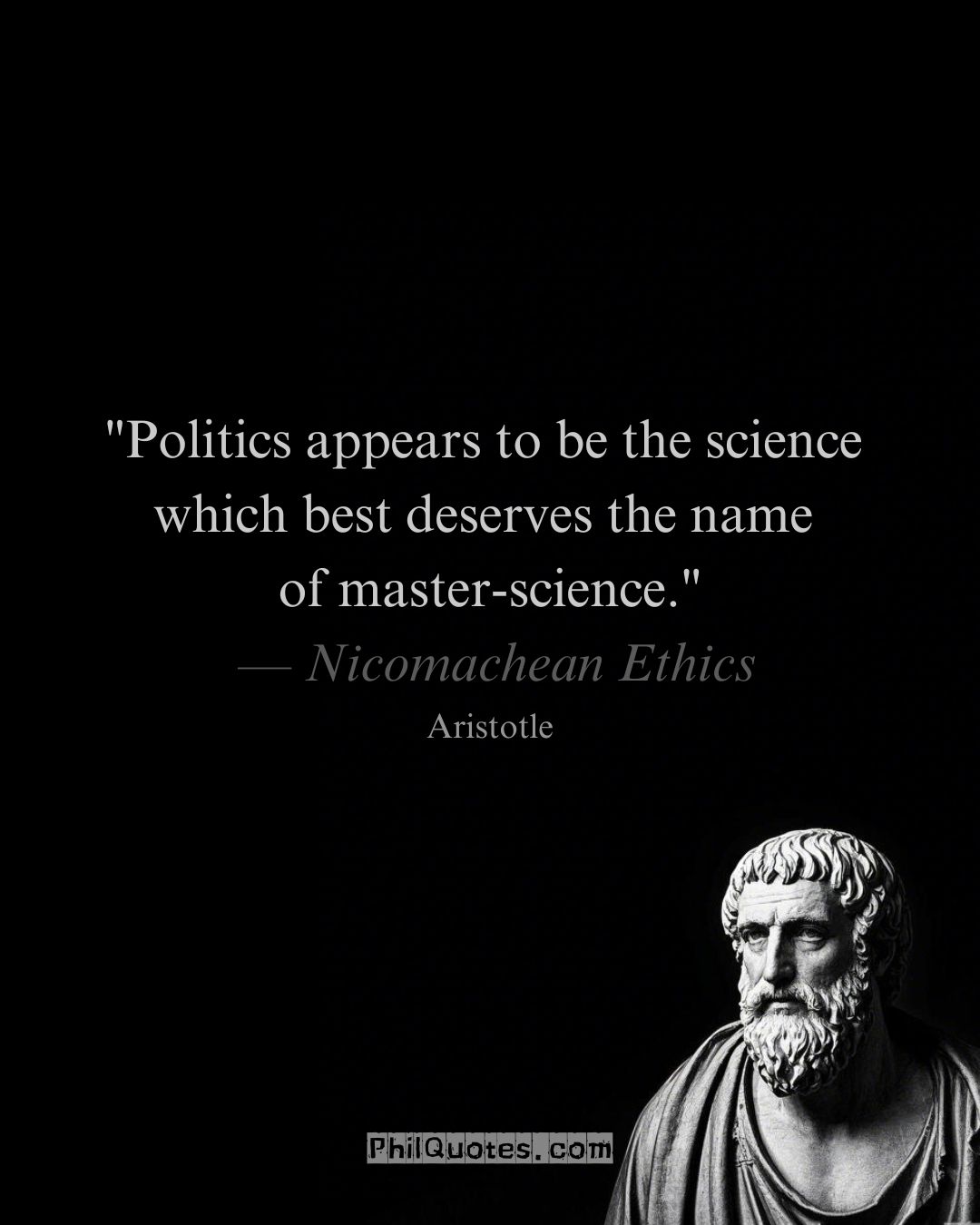
“Politics appears to be the science which best deserves the name of master-science.”
— Aristotle, Nicomachean Ethics, Book I, Chapter 2
Simple Explanation:
Aristotle elevates politics as the “master-science” because it governs all other sciences (economics, education, ethics) toward society’s highest good. Just as architecture directs masonry and engineering, politics harmonizes specialized fields for the common welfare.
Real-World Connection:
① Corporate Leadership →
You learn management (subordinate science) → coordinate departments (immediate goal) → align profits with ethics (higher science) → ensure long-term stability (master-science end: public trust).
② Urban Planning →
You study engineering (subordinate science) → design roads (proximate aim) → create walkable cities (applied science) → foster community health (master-science purpose: collective flourishing).
③ The Hidden Framework →
Aristotle’s master-science isn’t about power, but integrating knowledge — economics serves resource fairness, education cultivates civic virtue, all guided by politics toward eudaimonia (societal thriving).